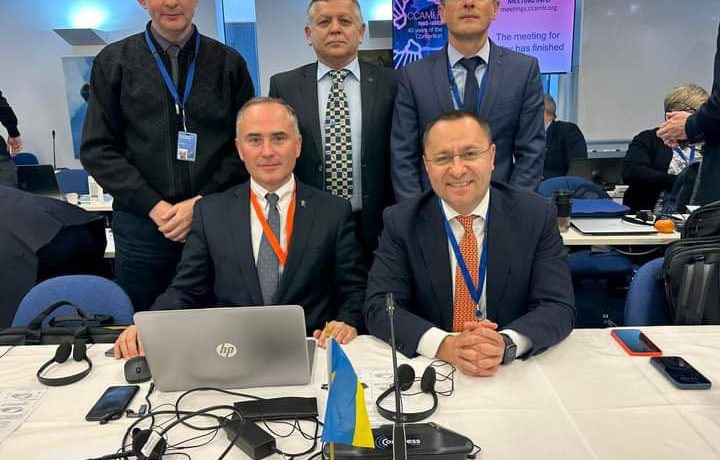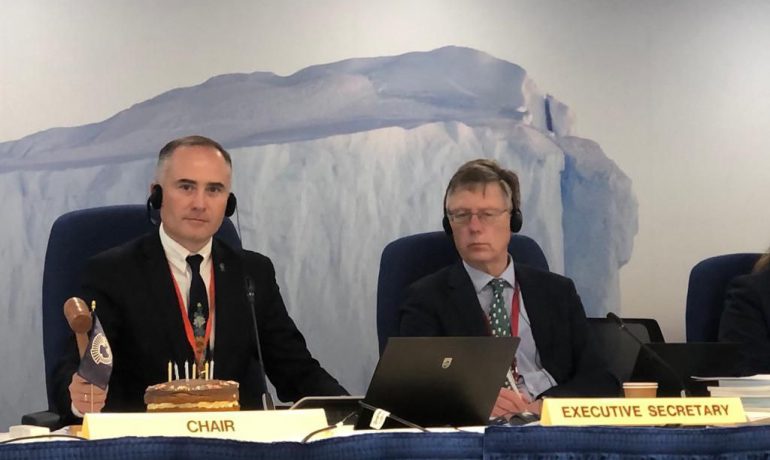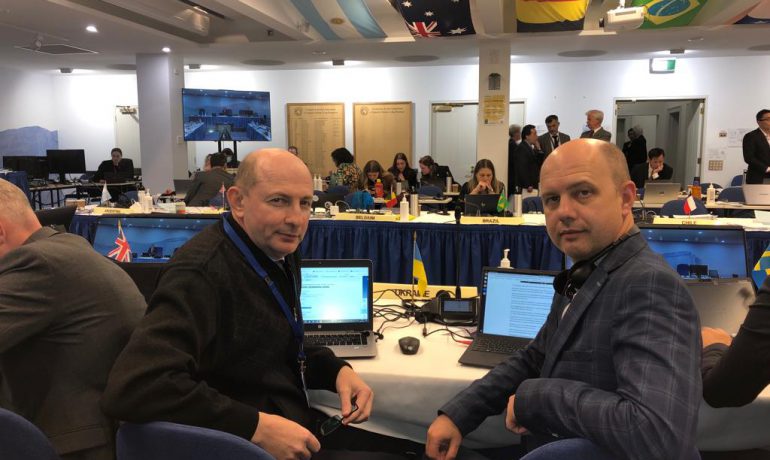The 42nd meeting of the Commission for the Conservation of Antarctic Marine Living Resources (CCAMLR) has concluded in Australia. This event is very significant for us, because during 2023 and 2024 Ukraine chairs the Commission, represented by the representative of the Ministry of Foreign Affairs Vitalii Tsymbaliuk. This meeting was the first of two scheduled ones led by Ukraine.
During such meetings, CCAMLR participants (26 states and the EU) determine:
- water areas where commercial fish species, Antarctic krill, etc. can be caught, as well as catch limits;
- water areas where nothing can be caught – marine protected areas (MPA).
Currently, there are 2 MPAs in Antarctic waters – on the shelf of the South Orkney Islands, created in 2009, and in the Ross Sea, created in 2016 (now it is the largest in the world, with an area of more than 400 thousand sq. km).
For Ukraine, during its chairing of the Commission, the priority is to create a network of monitoring sites for new MPAs. In particular, in the area of the Antarctic Peninsula, in the water area near Akademik Vernadsky station.
At previous meetings, the Ukrainian part presented a corresponding concept, to which, despite general approval, China made a number of comments. This year, our delegation reported on progress in strengthening the justification for the creation of monitoring sites, but China did not withdraw its comments. The Russian Federation remained silent about the monitoring sites near our station, but together with China spoke out against all proposed MPAs.
At CCAMLR, decisions are made by consensus and must be voted on by all participants. However, from year to year, China and the Russian Federation block the issue of MPAs creation as insufficiently substantiated. This meeting was not an exception.
At the same time, chairing the Commission gives us the opportunity to even more powerfully draw the attention of the international community to Russia’s full-scale armed aggression against Ukraine. Our delegation, which included NASC representatives, informed the participants about the history and new consequences of this invasion. The delegations of the United States, the European Union and its member countries, Great Britain, Australia, New Zealand, Japan, and Uruguay supported Ukraine and spoke out about the need for the immediate withdrawal of the troops of the aggressor state from our territory.
We thank all countries for their support, and the Ukrainian delegation for defending national interests. We sincerely wish that at the next meeting of the Commission, the issues of creating new MPAs will be resolved positively, and Ukraine will be congratulated on the Victory!
You can read about the results of the previous meeting here.
For reference: Ukraine is an active party to CCAMLR both in terms of industrial fishing and in the study of Antarctic marine living resources. Over a long period the National Antarctic Scientific Center participates in the Commission’s Ecosystem Monitoring program. It allows monitoring the state of penguin populations, assessing the state of the Antarctic krill stock and the impact of climate change.





